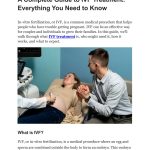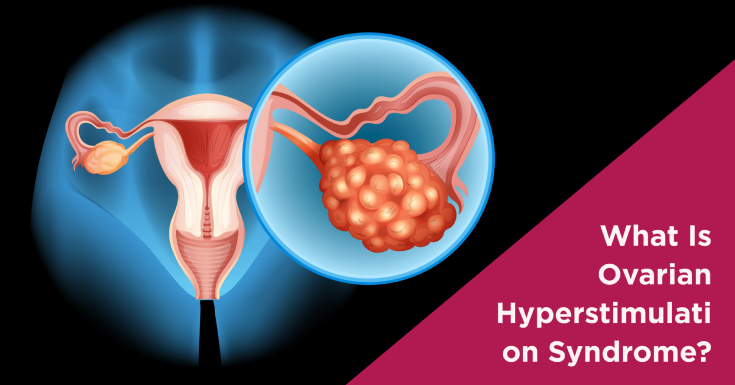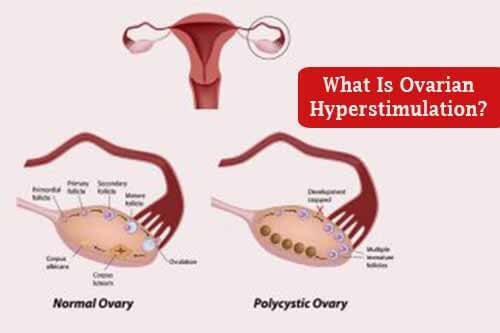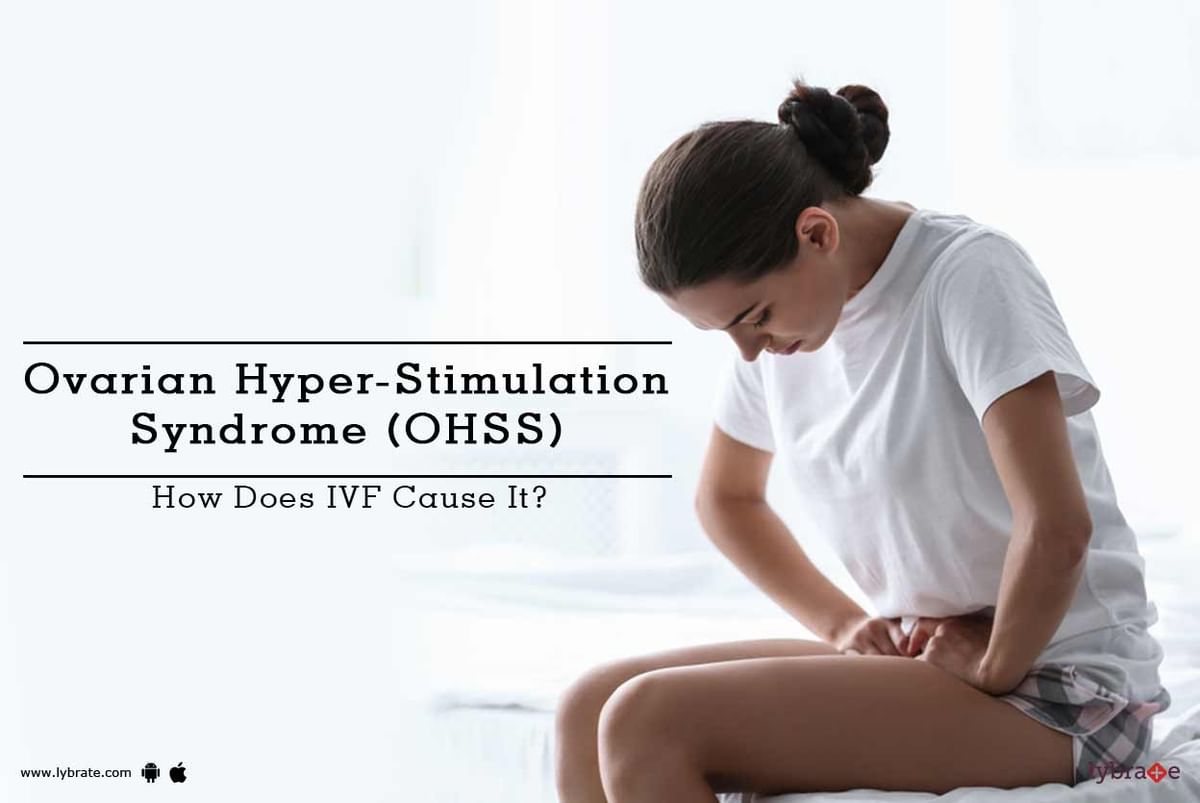
Your Ultimate Guide to New York IVF Clinics: Everything You Need to Know
April 24, 2025Understanding OHSS in IVF: A Deep Dive into the Hidden Struggles and Practical Solutions
Ovarian Hyperstimulation Syndrome (OHSS) might sound like a mouthful, but if you’re going through in vitro fertilization (IVF), it’s something you’ll want to know about. It’s a possible side effect of fertility treatments that can catch you off guard if you’re not prepared. Imagine your ovaries working overtime, swelling up, and causing discomfort—sometimes even more serious issues. It’s not exactly the glamorous part of the IVF journey people post about on Instagram, right? But here’s the thing: OHSS doesn’t have to be a mystery or a total buzzkill. With the right info, you can spot it, manage it, and keep chasing that baby dream without losing your cool.
This article is your go-to guide for everything OHSS-related. We’ll peel back the layers on what it is, why it happens, and how it feels—plus some surprising tidbits you won’t find in every fertility blog. Think of it like a chat with a friend who’s been there, mixed with some solid science and real-world tips. Whether you’re a planner who loves checklists or just curious about the nitty-gritty, we’ve got you covered. Let’s dive in!

What Is OHSS, Anyway?
Ovarian Hyperstimulation Syndrome, or OHSS, is what happens when your ovaries get a little too excited during fertility treatments. When you’re doing IVF, doctors give you hormone shots to kick your ovaries into gear, making them produce lots of eggs. Usually, that’s a good thing—more eggs, more chances! But sometimes, the ovaries overreact, swelling up and leaking fluid into your belly or chest. That’s OHSS in a nutshell.
It’s not super common, but it’s not rare either. Studies show about 1-5% of IVF cycles lead to moderate or severe OHSS. Mild cases? Way more common—up to 20-30% of women might feel a little bloated or crampy. So, if you’re feeling off after those hormone shots, you’re not alone.
Why Should You Care?
OHSS isn’t just a random annoyance—it can range from “ugh, I feel puffy” to “I need a doctor, stat!” Knowing what’s up can help you catch it early and avoid the scary stuff. Plus, let’s be real: the IVF process is emotional enough without unexpected curveballs. Understanding OHSS gives you power over your journey.
Why Does OHSS Happen During IVF?
So, what’s the deal? Why do some people sail through IVF while others end up with OHSS? It’s all about how your body responds to those fertility meds—usually gonadotropins like FSH (follicle-stimulating hormone). These drugs tell your ovaries, “Hey, let’s make a bunch of eggs!” Most of the time, it works like a charm. But for some, it’s like turning the volume up to 11 when 5 would’ve been fine.
The Science Behind It
When your ovaries pump out tons of eggs, they also release a chemical called vascular endothelial growth factor (VEGF). This little troublemaker makes blood vessels leaky, letting fluid escape into places it shouldn’t—like your abdomen. That’s why you might feel bloated or even short of breath if it gets intense. Researchers in a 2024 study from Ovarian Research found that women with higher VEGF levels were more likely to get OHSS. Cool, right? Science is figuring this out step by step.
Who’s at Risk?
Not everyone gets OHSS, but some folks are more prone. Here’s a quick rundown:
- Younger women (under 35): Your ovaries are super responsive—sometimes too much!
- Polycystic Ovary Syndrome (PCOS): If you’ve got PCOS, your ovaries might already be on high alert.
- High egg count: If your doc retrieves 15+ eggs, watch out.
- Previous OHSS: Been there, done that? You’re more likely to see it again.
Fun fact: Some women secretly call themselves “egg machines” when they produce a ton of eggs. It’s a badge of honor—until OHSS crashes the party.

What Does OHSS Feel Like? The Symptoms You Can’t Ignore
Okay, let’s get personal. OHSS isn’t just a medical term—it’s something you feel. And it’s not the same for everyone. Here’s how it might show up, from mild to “call your doctor now.”
Mild OHSS: The Annoying Stuff
- Bloating: Your jeans might feel like they shrank overnight.
- Cramping: Like period pains, but sneakier.
- Feeling full: Even if you haven’t eaten much.
Mild OHSS is like that friend who overstays their welcome—not dangerous, just uncomfortable. It usually fades on its own in a few days.
Moderate OHSS: When It Gets Real
- Swelling: Your belly might look like you’re a few months pregnant (ironic, huh?).
- Nausea: Food might sound gross.
- Weight gain: Gaining 5-10 pounds in a day or two? Yup, that’s fluid buildup.
Severe OHSS: Red Alert Time
- Trouble breathing: Fluid in your chest can make it hard to catch your breath.
- Peeing less: Your kidneys might slow down.
- Pain that won’t quit: Sharp or intense belly pain is a big nope.
Dr. Jane Miller, a fertility specialist from Cleveland Clinic, once said, “Severe OHSS is rare, but it’s a wake-up call. If you can’t keep water down or feel dizzy, don’t wait—call us.” Smart advice, right?
A Real-Life Example
Picture this: Sarah, a 29-year-old teacher, was thrilled when her IVF cycle produced 20 eggs. But a few days later, she couldn’t button her skirt and felt like she’d run a marathon just climbing stairs. Her doc confirmed moderate OHSS, and with rest and hydration, she bounced back. Stories like hers show it’s manageable—but you’ve got to know what to look for.
How Can You Spot OHSS Early?
Catching OHSS before it spirals is key. You don’t need a medical degree—just some awareness and a game plan. Here’s how to stay ahead of it.
Step-by-Step Guide to Monitoring Yourself
- Weigh yourself daily: A sudden jump (more than 2 pounds in a day) is a clue.
- Check your belly: Is it getting bigger or tighter? Measure it if you’re a numbers geek!
- Track how you feel: Write down bloating, pain, or nausea in a little notebook or app.
- Pee check: Less urine or darker color? Time to sip more water and call your doc if it persists.
✔️ Do This, ❌ Don’t Do That
✔️ Do: Rest if you feel off—your body’s telling you something.
✔️ Do: Drink water or electrolyte drinks (think Gatorade, but skip the sugar bombs).
❌ Don’t: Ignore sharp pain or breathing issues—those are SOS signals.
❌ Don’t: Load up on salty snacks; it can make swelling worse.
Can You Prevent OHSS? Tips From the Pros
Good news: OHSS isn’t inevitable. Doctors and patients can team up to lower the odds. Here’s what works, backed by science and real-world know-how.
What Your Doctor Can Do
- Lower doses: Starting with less of those hormone shots can keep things chill.
- Trigger switch: Using a drug like Lupron instead of hCG for the final “trigger” shot cuts OHSS risk big time. A 2023 study from ASRM showed a 50% drop in cases with this tweak.
- Freeze-all strategy: Got tons of eggs? Freeze them and skip the transfer this cycle—your ovaries get a breather.
What You Can Do
- Speak up: Tell your doc if you’ve got PCOS or had OHSS before—they’ll adjust the plan.
- Hydrate like a champ: Water flushes out extra fluid and keeps things balanced.
- Chill out: Skip the gym for a bit—your ovaries don’t need the extra stress.
Fun tip: Some IVF warriors swear by sipping coconut water post-retrieval. It’s not a cure, but it’s a tasty way to stay hydrated!
The Emotional Side of OHSS: What No One Talks About
Let’s get real for a sec. IVF is already a rollercoaster—hope, fear, waiting, repeat. Throw OHSS into the mix, and it’s like the ride just flipped upside down. You might feel frustrated (“Why me?”), scared (“Is this normal?”), or even guilty (“Did I push too hard?”). Those feelings? Totally valid.
A Peek Into the Private Struggles
- The mirror moment: Seeing your belly swell can mess with your head, especially when you’re not pregnant yet.
- The hobby hiatus: If you’re a runner or yoga lover, sitting still might drive you nuts.
- The fan-girl fears: Love true-crime podcasts? Hearing about medical mishaps might hit too close to home right now.
One woman I heard about—she’s a huge Harry Potter fan—joked that OHSS felt like her ovaries were casting “Engorgio” on themselves. Humor helped her cope, and maybe it can for you too.
How to Handle the Headspace
- Talk it out: Vent to a friend, partner, or even an online IVF group.
- Distract yourself: Binge a silly show or knit a scarf—whatever keeps your hands busy and your mind calm.
- Be kind: Remind yourself this is temporary. You’re tough as nails for doing IVF in the first place!
Latest Research: What’s New With OHSS in 2025?
Science isn’t snoozing on OHSS—it’s evolving fast. Here’s the freshest scoop from 2024 and early 2025 studies that could change the game.
Big Breakthroughs
- Metabolite clues: A May 2024 study in Ovarian Research found that women at risk for OHSS have unique chemical markers in their blood. Future tests might spot trouble before it starts.
- Gentler protocols: Researchers are testing “mini-IVF” with lower doses, slashing OHSS rates without tanking success.
- Fluid fix: A small 2025 trial showed IV fluids with albumin (a protein) can ease severe OHSS symptoms faster than plain saline.
Dr. Emily Chen, a reproductive endocrinologist, noted, “We’re getting smarter about predicting OHSS. It’s not just about reacting anymore—it’s about staying ahead.” That’s hope in a lab coat, folks!
Practical Advice: Your OHSS Survival Kit
Ready to tackle OHSS like a pro? Here’s your toolkit—stuff you can actually use, no fluff.
Day-to-Day Tips
| Symptom | What to Do | Why It Helps |
|---|---|---|
| Bloating | Wear loose clothes, sip peppermint tea | Eases pressure, calms your tummy |
| Nausea | Nibble crackers, avoid greasy food | Keeps your stomach settled |
| Swelling | Elevate your legs, rest more | Moves fluid away from your belly |
Your OHSS Checklist
✔️ Stock up on comfy leggings—no tight waistbands!
✔️ Keep a water bottle handy—aim for 8-10 cups a day.
✔️ Have your clinic’s number saved—better safe than sorry.
❌ Skip caffeine—it can dehydrate you.
❌ Don’t “tough it out” if symptoms ramp up—get help.
When to Call Your Doctor
- Gaining 10+ pounds fast
- Can’t eat or drink without puking
- Feeling faint or super short of breath

OHSS Myths vs. Facts: Busting the Confusion
There’s a lot of chatter out there about OHSS—some true, some total bunk. Let’s clear the air.
Myth #1: OHSS Means IVF Failed
Fact: Nope! You can have OHSS and still get pregnant. It’s about your ovaries’ reaction, not the outcome.
Myth #2: Only “Weak” People Get It
Fact: OHSS isn’t about toughness—it’s biology. Even marathon runners can get it if their ovaries go wild.
Myth #3: It’s Always Dangerous
Fact: Most cases are mild and fade away. Severe OHSS is rare, especially with modern tweaks to IVF.
The Long Game: Life After OHSS
So, you’ve dealt with OHSS—now what? Whether it was a mild blip or a bigger ordeal, it doesn’t define your IVF story. Here’s how to move forward.
Recovery Rundown
- Mild OHSS: Back to normal in a week or so.
- Moderate: Might take 10-14 days with rest and fluids.
- Severe: Could mean a hospital stay, but full recovery is still the goal.
What’s Next?
- Talk to your doc: They might tweak your next cycle to dodge a repeat.
- Celebrate your grit: You’re tougher than you think—OHSS didn’t stop you!
One IVF mom shared that after her OHSS scare, she started a scrapbook of her journey—baby pics included. It turned a rough patch into a victory lap.
Let’s Chat: Your Turn!
We’ve covered a ton—symptoms, science, tips, and even the emotional ups and downs of OHSS. But every IVF story is unique, and we’d love to hear yours. Drop a comment below:
- Have you dealt with OHSS? How’d you cope?
- What’s your go-to comfort trick during IVF—fuzzy socks, a good book, or something else?
- Got a question we didn’t answer? Ask away!
Let’s keep this convo going—because no one should feel alone on this wild ride. Share your thoughts, and let’s support each other!